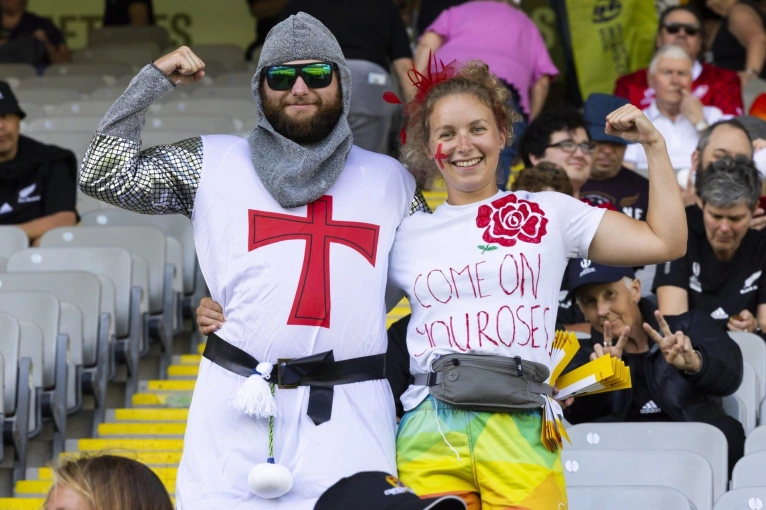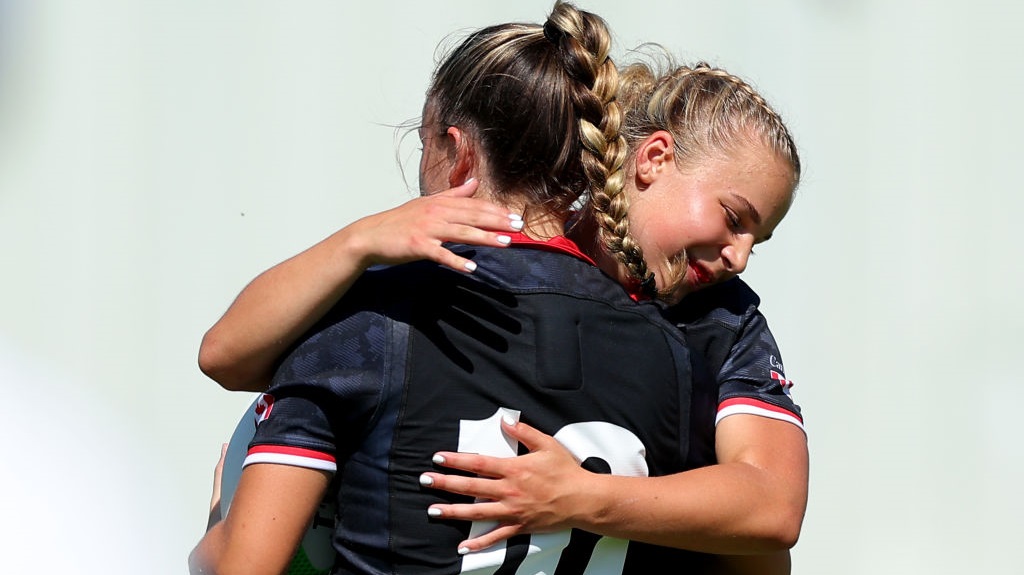New data reveals rugby participation is growing significantly

Global rugby participation is on the rise, with a remarkable 11 per cent increase in 2023, reaching 8.46 million players, as the sport stages a remarkable comeback following the upheaval caused by the COVID-19 pandemic.
New data released by World Rugby reveals that the sport of rugby is experiencing exponential growth across the globe, setting the stage for the eagerly anticipated 2023 Rugby World Cup. Here are the key highlights from the report:
In the post-pandemic era, a staggering 57 per cent of rugby players are pre-teen, underscoring the game’s appeal among the younger generation. Impressively, 24 per cent of these pre-teen participants are girls, marking significant progress in gender inclusivity. In total, nearly a quarter of all participants are female, signaling a strategic commitment to expanding the sport’s reach to women and girls.
Community rugby is thriving, with 8.46 million participants globally. This number includes 1.5 million active non-registered players, 5 million registered participants, and 1.9 million active registered players. The growth is particularly pronounced among adult male and female active registered players, which surged by 26 per cent and 38 per cent, respectively.
The report also highlights an impressive 30 perc ent increase in the number of rugby clubs worldwide. Emerging rugby nations such as Belgium, Spain, Singapore, Ghana, Nigeria, and Zambia are experiencing substantial growth, underscoring the sport’s expanding reach.
The data follows a record-breaking Women’s Rugby World Cup 2021, played in 2022, which shattered previous attendance, engagement, and viewership records. This success has set a strong platform for inspiring the next generation of players and supporters, emphasizing rugby’s global appeal. The report coincides with the anticipation of the upcoming Men’s Rugby World Cup in France, which has already generated record in-market awareness and positivity ratings.

The growth in rugby participation marks a significant recovery from the setbacks faced during the global pandemic. World Rugby, in collaboration with its member unions, actively supported the return to play, implementing COVID-19 law variations and Game on Global Community Law Variations. Additionally, recommendations for lowered tackle heights were introduced to enhance safety.
One notable contributor to the reduction in participation during the pandemic was the inability to run casual rugby programs in schools and introductory Get Into Rugby (GIR) initiatives in many nations. However, with the cessation of GIR activity during the pandemic in some regions, the sport is now making a robust resurgence.
World Rugby’s commitment to rugby’s growth is exemplified by its substantial investment of £575 million between 2020 and 2023 in the development of the sport. This financial support extends to unions and regions, facilitating the global expansion of the game and offering a broader range of services to bolster rugby’s presence worldwide.
As the world eagerly anticipates the 2023 Rugby World Cup, the robust growth in rugby participation reflects the sport’s resilience and global appeal, especially among youth and women, solidifying its position as a sport for all.
World Rugby Chairman Sir Bill Beaumont said: “The global pandemic was the biggest societal disruption in recent times, and sport was certainly not immune. As a sport, we responded diligently by supporting our regions and unions both financially and with the implementation of the ‘Game On Community Law Variations’, and opt-in reduced tackle height trial in the community game. I would like to thank everyone, including the huge group of community club volunteers, who have made this possible.

“There truly is a form of the game for all – non contact, contact, sevens, fifteens – and I am excited to see girls and boys, men and women return to the sport in their millions or taking it up for the first time ahead of Rugby World Cup 2023 in France that will inspire a new generation to play and support the game.
“However, we will not stand still. More than 80 per cent of our players come from 20 nations and we must continue to ensure that our sport is as safe, attractive, accessible and relevant as possible in order to continue to grow beyond our traditional heartlands. Working tirelessly with our unions, we are committed to cementing rugby as the most progressive sport on player welfare, while also exploring ways to enhance the playing and viewing experience.”
World Rugby Participation Director Jason Lewis added: “Encouragingly, the return to rugby in the 15s game in 2023 was driven by pre-teens with 57 per cent of all players around the globe pre-teen, 24 per cent of them girls, demonstrating a deep connection between the attractiveness of the sport and the next generation of adult community players. Globally, the number of clubs has increased by more than 30 per cent.
“The challenge for all sports is retention given the competition in the entertainment and sports space and in 2021 we launched a renewed Participation Plan in partnership with unions and regions and continue to work towards making the sport as accessible and relevant as possible for young people with limited time.
“At the heart of the plan is to support unions to develop their capability and capacity and the ‘Game On Global’ community law variations are a great example which shows how World Rugby can support unions to drive the accessibility and sustainability of the sport. Aimed at simplicity, enjoyment, safety and getting games on irrespective of numbers, the programme provides a menu of options for unions. We must, therefore, continue to showcase the great versatility of rugby in all its formats as an inclusive and accessible sport for all.”



















































Yeah I’d like to see the stats for the adult men’s game in England. Clubs in my area lost so many players during Covid and still struggling.
Not on NZ. Rugby gets slagged off continually. Basketball and soccer bigger.
The regions that are growing are where Rugby is starting from a low place i.e where it is an emerging sport. I think in NZ's case Rugby has always been the dominant code and has reached it's possible ceiling. It is unrealistic for Rugby to maintain it''s complete dominance that it had as a participation sport where people have so many more choices now.
What I think is more important for Rugby is to attract the best athletes. If you look at the two big OZ sports..Rules and League they are not the biggest participation sports. Soccer and Cricket are higher by far. Rules is much higher than league. But it isn't about participation, or else walking would be our national sport.
Believe it or not but Rugby is still a very healthy sport despite what the dooms day merchants say and has significant numbers playing it. They also have top quality athletes playing it.
Don't get me wrong it has areas that need working on, everyone can see that but I think there are alot of good things happening as well.